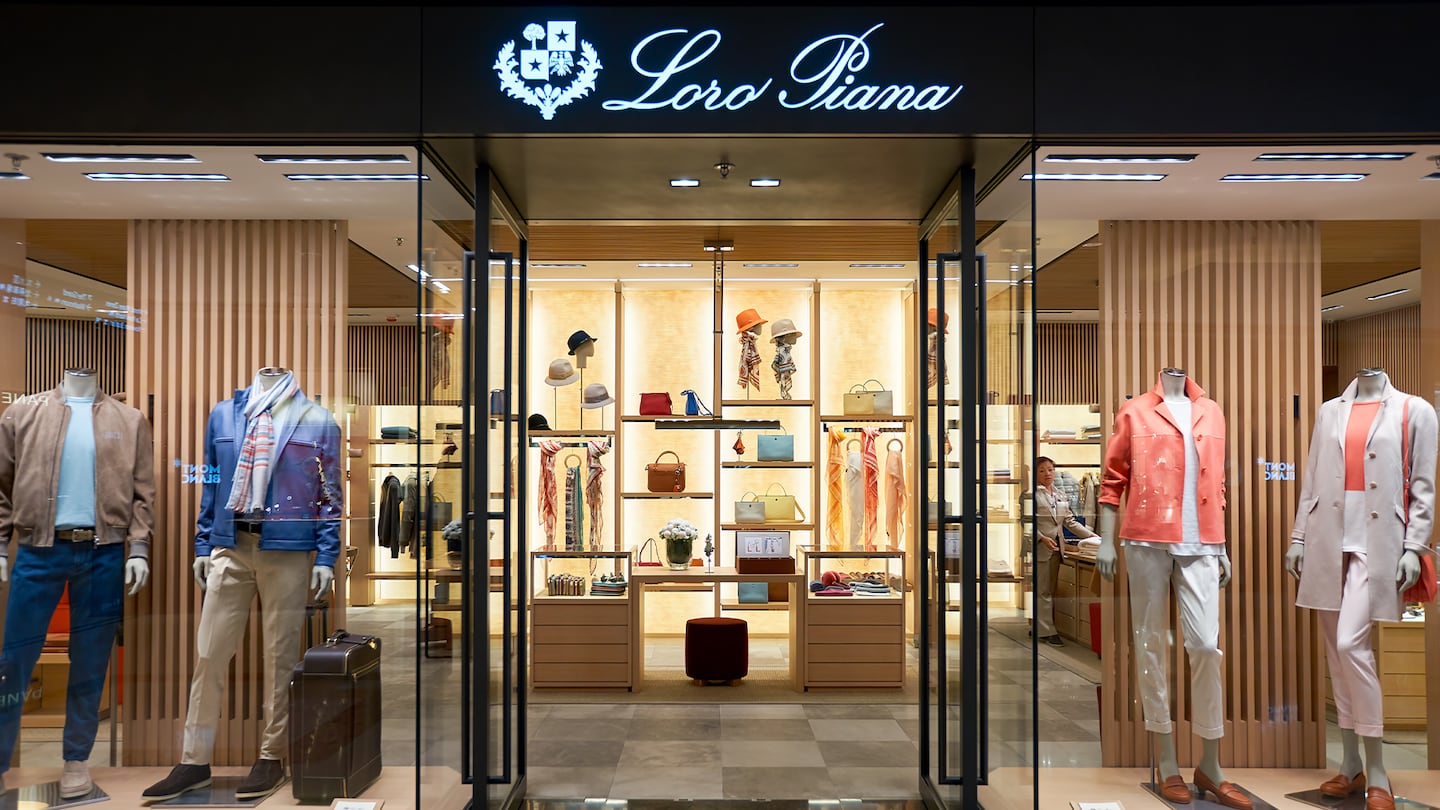
Agenda-setting intelligence, analysis and advice for the global fashion community.

Agenda-setting intelligence, analysis and advice for the global fashion community.

An Italian court has placed LVMH group’s high-end Italian cashmere firm Loro Piana under judicial administration for a year after allegedly uncovering worker abuse inside its supply chain, in the latest in a string of cases that have tainted the image of Italy’s luxury brands.
Loro Piana Spa is the fifth fashion company to be targeted by the same Milan court for similar labour issues since 2023, according to the 26-page ruling reviewed by Reuters on Monday.
Units of fashion brands Valentino, LVMH’s Dior, Italy’s Armani, and Italian handbag company Alviero Martini were also placed under administration.
The court found that Loro Piana, which makes cashmere clothing, subcontracted its production through two front firms with no actual manufacturing capacity to Chinese-owned workshops in Italy that it said exploited workers.
ADVERTISEMENT
The Milan court found Loro Piana “culpably failed” to adequately oversee its suppliers in order to pursue higher profits, according to the ruling.
The court in its ruling also appointed an external administrator to verify the company meets all the judges’ demands on control of its supply chain.
Loro Piana declined to comment. LVMH was not immediately available for comment.
The administration will be lifted earlier if the unit brings its practices into line with legal requirements, as was the case with Dior, Armani and Alviero Martini previously targeted by the court.
LVMH, the world’s biggest luxury group, acquired 80 percent of Loro Piana in July 2013, leaving 20 percent in the hands of the Italian family that founded the company.
In their ruling, the Milan judges wrote that despite the previous cases being widely reported “this production chain, headed by Loro Piana, has continued to operate until now.”
In its ruling, the court also emphasises that this kept going even after representatives of Italy’s fashion brands signed an accord in May with legal and political authorities to fight worker exploitation.
The owners of the contracting and subcontracting companies are under investigation by Milan prosecutors for exploiting workers and employing people off the books. Loro Piana Spa itself faces no criminal probe.
ADVERTISEMENT
The prosecutors in the case said the violation of rules among fashion companies in Italy was “a generalised and consolidated manufacturing method.”
Italy is home to thousands of small manufacturers that make up 50 – 55 percent of global luxury goods production, consultancy Bain has calculated.
The case involving Loro Piana Spa originated after Carabinieri police from the Milan labour protection unit in May arrested a Chinese workshop owner and closed his factory in the northwestern suburbs of Milan.
The employer was reported by one of his workers for beating him, causing injuries that required 45 days of treatment, after the worker demanded €10,000 ($11,692.00) in unpaid wages.
Carabinieri police found that the workshop produced Loro Piana-branded cashmere jackets and that its 10 Chinese labourers, including five illegal immigrants, were forced to work up to 90 hours a week, seven days a week, were paid €4 an hour, and slept in rooms illegally set up inside the factory.
Carabinieri said in a statement they inspected two intermediary companies and three Chinese workshops, all in the Milan area, and identified 21 workers, 10 of whom were working off the books without proper registration, including seven illegal immigrants.
According to the court ruling, the owner of an intermediary company stated that in recent years she had been producing around 6,000-7,000 jackets per year for Loro Piana at an agreed price of €118 per jacket if the order was for more than 100 items and €128 if the order was under 100 items.
Based on the Loro Piana website, for example, men’s cashmere jackets range from a minimum of over €3,000 to a maximum of over €5,000.
ADVERTISEMENT
In their statement, Carabinieri concluded they had closed two Chinese-owned factories, the third being a ‘paper’ company with no production capacity, and imposed a joint fine of over €240,000.
By Emilio Parodi, Elisa Anzolin; Editors: Keith Weir and Susan Fenton
Learn more:
A Slap on the Wrist Won’t Solve Luxury’s Sweatshops Problem
This week, Italy’s Competition Authority closed a probe into whether Dior misled consumers about working conditions at its suppliers without finding any wrongdoing. But a new case linking Valentino to poor labour practices suggests this is a problem that won’t go away easily.
Tapping into the viral bag charm craze is ‘sensibly opportunistic’ for luxury companies that might as well ‘make some money off the back of it,’ said Neil Saunders, managing director at analytics firm GlobalData.
Rising prices, shifting consumer tastes and manufacturing scandals are eroding trust in luxury, giving counterfeiters and dupe-makers new opportunities to win over shoppers seeking style at a more accessible cost, writes Andrea Felsted.
This week, President Trump’s tariff on Switzerland went into effect, landing levies of 39 percent on every watch the country exports to the US. For some Swiss watchmakers, the threat is existential.
With more luxury openings driving up supply and economic uncertainty tamping down demand, top London hotels are recalibrating their prices.
Generative AI is being adopted across the beauty industry to create everything from product images to formulas themselves, based on prompted “vibes.” As more companies utilise these tools for efficiency, they risk losing the creative touch that separates storytelling from slop.
The institution is fostering a new generation of fashion practitioners with the skills to address one of the industry’s most significant challenges: sustainability. To learn more, BoF sits down with the course leader of Falmouth University’s online MA in Sustainable Fashion, Tom Crisp.
Season seven of Avery Trufelman’s fashion podcast, titled “Gear,” will explore the relationship between the US military and outdoor performance wear.
Emerging labels like Kallmeyer, TWP and Studio Nicholson are capturing high-spending shoppers with premium quality at accessible prices, forcing the industry to rethink what luxury means in 2025.